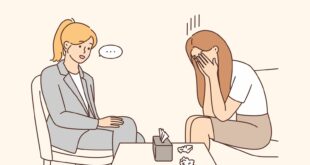Quicksand… it pulls you in; you struggle to break free but it keeps drawing you back down.
Mosquito… it sneakily invades your body and sucks your energy.
Glue… it holds you bound, stealing your will to live; leaving you stuck in thoughts of suicide.
Depression is a prison we’ve all serve time in. Where we differ, depends on how long we stay locked up. We occasionally experience the sadness and hopelessness that comes with life’s struggles such as losing a loved one, getting a divorce, and experiencing failures. Then there are the seasonal blues, and the phase of gloom that may follow childbirth. Nonetheless, when these intense feelings of hopelessness persist for more than a week and robs normal functioning, that’s the cue for clinical depression—the “quicksand-mosquito-glue” depression.
This illness shouldn’t be viewed as just a bug on a windshield, but more like an accident on a highway. As quoted from the WebMD website, “In the U.S., about 14.8 million adults suffer from major depression, according to the National Institute of Mental Health.” The records show that this illness is no small problem. Most people affected by clinical depression tend to revel in self-denial. They’ll try to rationalize their mood, blame themselves, or conclude that the feeling will pass. As a result, out of the millions who suffer from the illness, only a small percentage seeks professional diagnosis and medical treatment.
A typical self-talk from someone struggling with depression: “Sleeping is something I haven’t done in nights, yet I never feel like getting out of bed…I don’t even feel like thinking! I’m just not my usual self these days. Playing basketball, hanging out with the guys, and going to church are some of my favorite enjoyments. Yet for the past couple of weeks I have done neither. All I do is sulk and eat endlessly. It’s not that I want to…. I just can’t seem to help it. I’m useless.”
Unlike hypertension and diabetes that mostly affect people of a particular racial and ethnic group, clinical depression has no boundaries. It occurs in children, teens, and adults of either gender. If left undetected and thus untreated, clinical depression can lead to suicide. Although it may seem like just a state of being, it weighs heavily on one’s mental health. Ultimately, the body goes where the mind leads. This illness cannot be prevented by taking a pill, exercising or eating right. Also, it doesn’t disappear overnight. Yet, there are ways to identify as well as treat this disorder. It does not have to be the final stop on your life’s journey.
Don’t miss part two of this two part series for the common signs/symptoms, treatment options, and what you can do to help.
 The Bottom Line, Ministries Christian News, Articles, & Poetry
The Bottom Line, Ministries Christian News, Articles, & Poetry 





Wonderful article Amelia. I definitely can relate to this. I found a wonderful Facebook page with insightful information, very encouraging and helpful called “International Bipolar Foundation.” I recommend this for anyone with depression, anxiety or bipolar. It is very encouraging. Thank you for spreading the news about “Depression”. There are more people who experience and suffer with this than we know. It is an important topic. People with depression do not have to feel alone.